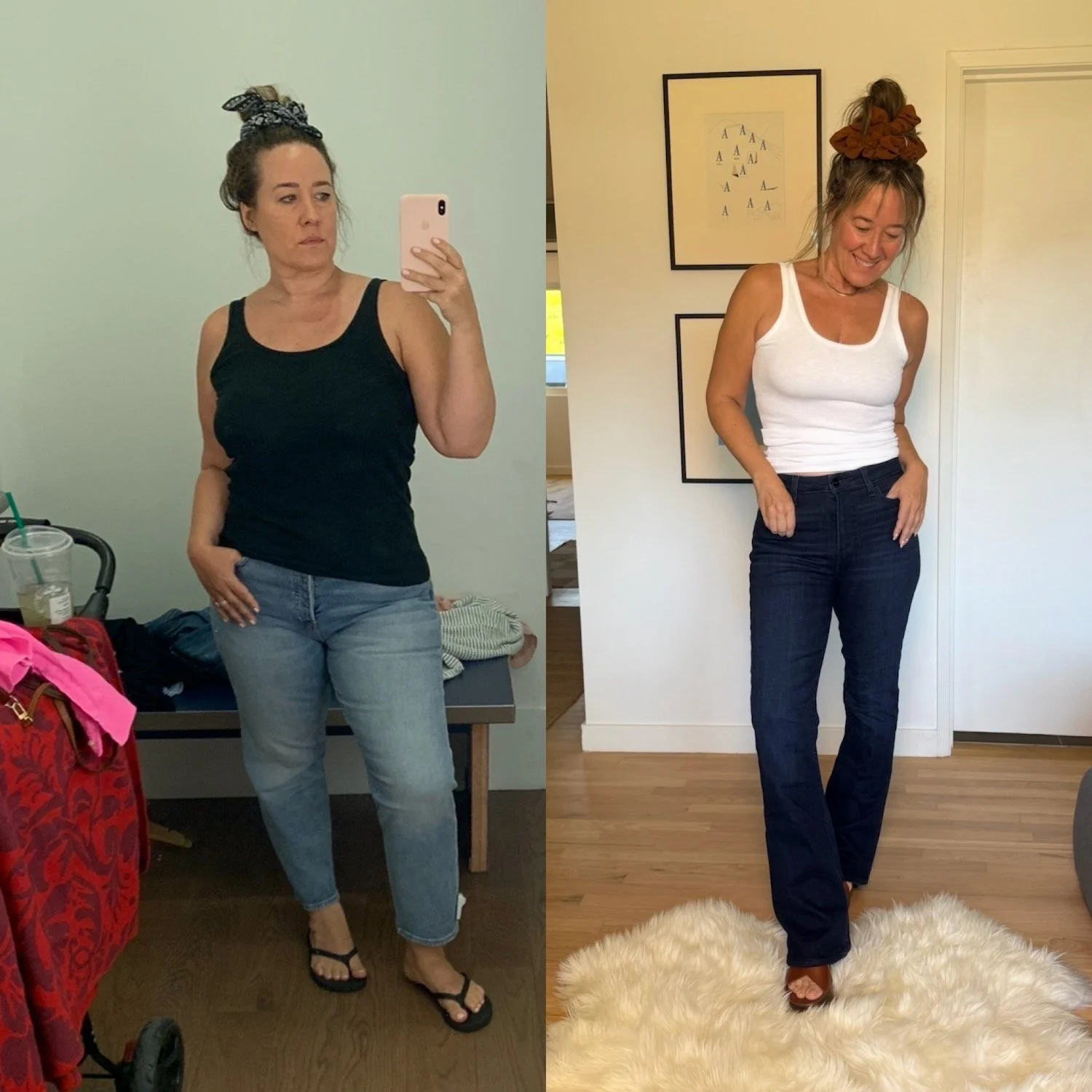If You’re Over 40, Book A Colonoscopy—And 4 Other Things To Book Right Now To Prevent An Early Death
by The Candidly Team
Health is everything. We know this. But when we feel fine, we forget this.
Which is why, even though it’s not as fun as say discovering that a beloved fruit might help you burn fat, we often have to force ourselves to think about the more medical things that could do nothing short of save our lives.
And look, when it comes to longevity, prevention is obviously key. Choices we make daily, like doing more of THIS and less of THIS or maybe eating more of THESE are a HUGE part of what we like to research and write about because we’re enormous fans of the protective stuff we can do at home
But if you’re in your 40s, there are also certain things you should be booking with your doctor, because early detection is also a part of prevention.
So while a comprehensive list based on your personal medical profile and history is, of course, something that should be tailored to you by you and your medical team, here are some tests we’ve been hearing more about from sources we trust - a few of which were eye-opening for us. We figured you, too, might not know about all of them, or maybe you aren’t sure how they work or that you’re at the age to get them.
So we decided to shed some light on 5 very, very important ones.
1. The Colonoscopy
Maybe you’ve heard the headlines screaming that colorectal cancer is on the rise and affecting people younger and younger. And naturally, this makes screening even more critical. The American Cancer Society has actually moved up the age recommendation and now suggests starting screening at 45 instead of 50. And of course, you should discuss any signs or symptoms you’re experiencing even earlier.
Once you’re ready to be checked out, there are a few testing options, which include stool tests or visual and structural tests such as a colonoscopy, each which should be done with varying levels of frequency. As for the colonoscopy, according to the Mayo Clinic, the exam can now be done with or without sedation. It takes about half hour and should be repeated “every 10 years if no abnormalities are found and you don't have an increased risk of colon cancer.” It’s considered “one of the most sensitive tests currently available for colon cancer screening,” and any polyps or abnormal tissue that’s found can often be removed and biopsied during the procedure.
Side note: There’s actually a blood test excitingly awaiting FDA approval that a recent study showed could detect 83% of people with colorectal cancer, so that’s one to keep tracking. In the meantime, get on your MD about scheduling that colonoscopy.
2. The Blood Pressure Check
You’ve heard it before. Heart disease is the #1 killer of women. And high blood pressure or hypertension is a huge risk factor for heart disease as well as stroke. Sadly, it often shows up without symptoms.
A quick rundown of things that can contribute to hypertension, according to the World Health Organization are:
genetics
physical inactivity
obesity or being overweight
salt
alcohol
getting older
That’s right. Age matters. And the WHO also estimates about 43% of people with hypertension don’t know they have it.
Bottom line: you gotta get your blood pressure checked regularly, at least once a year. And possibly more often, particularly if you “have diabetes, heart disease, kidney problems, or are overweight or have certain other health conditions,” according to MedlinePlus. They also suggest asking your doctor if you should be checked more frequently if you “have a first-degree relative with high blood pressure, your blood pressure top number is from 120 to 129 mm Hg, or the bottom number is from 70 to 79 mm Hg,” or if “you had high blood pressure during a pregnancy.” Black women are also “nearly 50 percent more likely to have high blood pressure,” according to the U.S Department of Health and Human Services Office of Minority Health.
You may even want to own an at-home blood pressure kit to check it on your own.
3. The Blood Panel
What your blood panel tests for will depend on your history, and this is in no way a comprehensive list, but as a woman in your 40s, your screening should very likely include cholesterol and lipid panel along with diabetes.
Cholesterol
If you pay attention to health, you might think everyone thinks about cholesterol but researcher Dipika J. Gopal, MD found in a 2019 study that 8 out of 10 women of childbearing age have never checked their cholesterol levels. “Not nearly as many people as we think are actually getting cholesterol screening despite very clear recommendations,” said Dupal. “In fact, the number of patients who have ever been screened was staggeringly low, perhaps because they’re either not going to their primary care doctor or their doctor isn’t ordering the test.”
A blood test will measure what gets labeled your “bad cholesterol” or LDL cholesterol, which “contributes to fatty buildups in arteries … and increases the risk for heart attack, stroke and peripheral artery disease,” according to The American Heart Association. And it will measure your HDL cholesterol (the “good” kind) that “may help protect against heart attack and stroke.”
Diabetes
Frighteningly according to the CDC, 1 in 3 Americans have prediabetes and around 80% don’t know It. The American Diabetes Association recommends screening for diabetes when you have any of the following factors:
a body mass index higher than 25 (23 for Asian Americans) regardless of age
high blood pressure
non-typical cholesterol levels
an inactive lifestyle
a history of polycystic ovary syndrome or heart disease
a close relative with diabetes
are older than 35
have had gestational diabetes
have been diagnosed with prediabetes
have HIV
Knowing you have high blood sugar or prediabetes can be a major sign that dietary and lifestyle changes are needed, but the good news is that when we know about them, they can be addressed and even reversed, according to Yale Medicine. “Often only minor changes in dietary intake and minimal weight loss, together with more physical activity, will help chase diabetes away,” said Yale endocrinologist Sonia Caprio, MD.
4. The Mam And Pap
Screening for breast and cervical cancer is something you can and should hear a lot about, particularly as you sail past 35.
Starting with breast health, the U.S. Preventive Services Task Force has set new guidelines, suggesting women start getting mammograms at age 40. Some doctors might even tell you to start sooner. If you haven’t done one yet, it’s pretty much an x-ray of your breasts that can be a little squeezy and uncomfortable but shouldn’t be painful or take too long. In some cases, your doctor may also order an accompanying breast MRI when your risk for breast cancer is higher.
There’s also a tool online that’s caught some attention of late that could help calculate your risk of developing breast cancer and therefore determine if additional screening could be needed.
Paps and HPV tests also remain very necessary in our 40s. Additional STD tests are also a good idea, but even if you haven’t had a new partner in ages, HPV infections can persist or resurface. It’s completely possible to test positive, then negative, then positive again. According to Johns Hopkins Medicine “if you are older than 30 and have had 3 normal Pap tests in a row, you can be tested once every 3 years,” but “if you are at high risk for cervical cancer, you may need more screenings more often than the guidelines suggest. Especially if you have a weak immune system or have been treated for abnormal cervical cells in the past.”
5. The Derm Appointment
This one should actually start in your 20s, because skin cancer is all about catching it early.
We’re also gonna go out on a limb and call this easy(ish) as far as exams go, because how many predominantly involve just looking at you on the outside and not poking or prodding and all that stuff we, as women, are far too used to by the time we reach 40?
And yes, we know a skin check up involves showing ALL our skin and that derms might need to do biopsies etc, but still, as far as annual exams go, it’s not too taxing.
Go once a year (unless your doc suggests more frequency) as well as anytime you notice a concerning spot. Which brings us to doing home skincare checks, which yes, we gotta do. Here’s how.
BONUS:
Is it weird to call this section a “bonus?” Yes. But frankly, we were at a loss of how to categorize a list of other, not just tests, but actions that we felt were worth a mention with regard to your health.
For starters, there are screenings for lipids, depression, thyroid, and alcohol abuse, all depending on your specific needs that you can look into. Another heart-health specific one we’ve recently been hearing pop up all around is a “calcium test.”
The Calcium Test
A coronary artery calcium test is a CT scan that checks for the buildup of calcified plaque in blood vessels, one of the strongest indicators of heart disease risk. According to The American Heart Association, this test could be helpful for some people between ages 40 and 75 when their risk of developing heart disease is uncertain as it can help determine who will benefit from statins (cholesterol lowering drugs). However, as the AHA points out, “the test isn't recommended universally for everyone but is most helpful for those whose risk falls in an intermediate zone.” So once again, you can open up a conversation with your doctor, and they can help you decide if you could use one.
The Unbookable Extras
There are, of course, some major players in the world of diet and exercise and sleep and not stressing that help determine whether or not we’ll get sick, and it’s far more than we can get into here. However, here are two important and specific daily habits we’ve been told by cardiac and proctology doctors recently that we wanted to leave you with.
1. Don’t sit on a toilet longer than five minutes maximum and use a squatty potty. Straining and sitting for too long can lead to bigger colon problems down the line.
2. Take 4 tbsp of flax as well as a dose of fish oil daily for heart health.
3. Make weight training a priority This can help build leaner muscle mass and reduce fat, which of course, contributes to cardiivascular health.
This article is for informational purposes only. It is not intended to be used in place of professional advice, medical treatment, or professional care in any way. This article is not intended to be and should not be a substitute for professional care, advice or treatment. Please consult with your physician or healthcare provider before changing any health regimen. This article is not intended to diagnose, treat, or prevent disease of any kind. Read our Terms & Conditions and Privacy Policy.
At The Candidly, we try a lot of stuff so you don’t have to. We only recommend things we truly love, and that we think you’ll love, too. All products are chosen independently by our creative team, and all details reflect the price and availability of products at the time of publication. If you buy something we link to, The Candidly may earn a commission.
We have to eat.















